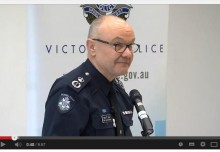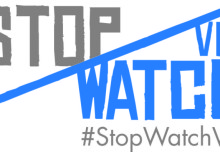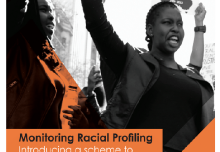A death we need to learn from

Findings from the long running inquest into the death of a young Ethiopian-Australian man, Michael Atakelt. who was found dead in the Maribyrnong River in 2011 were handed down on Thursday 28th August, 2014.
Michael’s body was found floating near the Raleigh Rd, Maribyrnong pontoon on July 7, 2011. Issues had been raised during the inquest about the police investigation of Michael’s death, including the police response to Michael’s mother’s multiple attempts to lodge a missing person’s report and raise her concerns about her son’s safety.
The Flemington Kensington Community Legal Centre has been acting for Michael’s mother.
The inquest, presided over by State Coroner Ian Gray, has found that that the medical cause of death was ‘consistent with drowning’ but has delivered an ‘open’ finding as to the circumstances surrounding Michael’s death.
The Coroner has made several recommendations to Victoria Police including internal training on cultural factors which might impact upon delivering a death message, review of the language used to categorise and describe deaths to prevent any misunderstandings and that there be a transparent system for filing missing persons reports so that members of the community are better able to report those whose they are concerned about missing and be provided accurate information regarding actions (if any) police are taking with respect to their concerns about loved ones.
While we a grateful to the Coroner for coming to an “open” finding in relation to cause of Michael’s death and for his adoption of our client’s missing person’s recommendations we are concerned about the implications of two of his comments.
“Non-Suspicious”
In our view, the Coroner misunderstood our client’s concern about the very early labelling of Michael’s death as “non-suspicious” by the police.
It is not a problem of misunderstanding by the Ethiopian community of the meaning of the term “non-suspicious”. It was not a ‘cultural’ issue – it was rather a issue with police assumptions. The same problem arises if, very early on in an investigation, any death is labelled as “not consistent with homicide” as was suggested as an alternative by the coroner. An investigation into any unexplained death must be thorough and an inclusive, examining all lines of inquiry thoroughly.
By disregarding the potential for foul-play early in an investigation, through labelling it as “non-suspicious” or even “not consistent with homicide” entire avenues of investigation can be, and were disregarded by police. Community members provided police with several leads that were never followed up until the second coronial investigator was appointed.
The Coroner found that there remains a possibility that Michael may have come to his death as a result of foul play. Any early decision not to examine potential foul play has ramifications for the effectiveness of the investigation into any death.
Independent Investigator
A second issue of concern raised by the Coroner’s finding was the conclusion that it “would have been wise” to assign the investigation to a person from outside the region.
The Coroner stated: “Given the perception at the time (however mistaken) it would in my view have been wise to assign officers from outside the local area to conduct the investigation from the outset.”(Paragraph 124)
Yes, it would have been wise for Victoria Police to assign an independent investigator from outside the Flemington and Footscray region. Senior officers were well aware of the concerns of the community and this was something that was clearly called for in the large community forums held in the months after Michael’s death. At a public meeting in December 2011, Assistant Commissioner Stephen Fontana defended the decision to assign the case to Footscray, explaining that it was standard practice for the local crime investigators to handle such a case, and he would not deviate from that practice.
But equally, it would have been wise for the Coroner to appoint an officer from outside the Flemington and Footscray regions as the investigator. The Coroner too, was well aware of this problem from early on in the investigation. To the State Coroner’s credit, he did appoint an independent investigator after over a year of investigation into the cause of Michael’s death.
In February 2013, the State Coroner suspended the hearing and directed the police to reinvestigate with a different detective in charge. On the Coroner’s instructions, they followed up evidence that had never been collected including CCTV footage and security information, but by then it was too late.
It is a great shame that an investigator independent of the Flemington and Footscray area was not appointed by the Coroner at first instance.
As the Coroner noted, it is obvious that investigations can be compromised if members of the community are reluctant to come forward to give information to police. There is no advantage to be obtained through blaming a community for its lack of confidence in an investigation. The only solution that will increase the community’s confidence in a Coronial investigation is to ensure the appointment of an independent and effective investigator from the outset of an investigation.
The Coroner stated that it was not within scope to consider the broader policing issues and the relationship between Victoria Police and the Ethiopian / Tigrinian community at the time, but noted that “there was clearly a lack of trust and confidence in local police” and that senior police attendances at the large community meetings indicated that police were aware of and sought to address this lack of confidence and trust.
The Coroner went on to state that there is an “obligation on agencies such as Victoria Police to ensure that they build and maintain the confidence of communities that they serve.” (Paragraph 131)
He said that, in this case, there was a “serious level of mistrust” on the part of some people “based upon a perception of unfair treatment by police of members of the Ethiopian/Trifrinian community”.
We believe that this is far more than just “perception”. Mistrust and lack of confidence in police is the result of years of lived experience with racist, prejudicial and discriminatory policing practices.
These experiences of assault, abuse and discrimination have been well documented by local research by councils, community legal centres, the Victorian Human Rights and Equal Opportunity Commission (VHREOC) and the Australian Human Rights and Equal Opportunity Commission (HREOC).
Julian Burnside, assisting the Coroner, raised the issues of the Ethiopian community’s difficulty in communicating with police, and that claims of ‘over-policing’ and “under-policing in this case, is not an irrational view“.
Victoria Police LEAP data released as part of our Haile-Michael race discrimination case in 2013 showed that young African-Australian men in the area were almost two-and-a-half times more likely to be stopped and searched by police, even though they committed relatively fewer crimes than young men of other ethnic backgrounds.
Associate Professor Steve James, a criminologist from University of Melbourne says that the ‘flipside of overpolicing is underprotection. You target certain groups and you overpolice them, but you don’t provide for them the same rigor of victim services. Police can do just as much damage to community relations by simply underpolicing as they can by overpolicing.’ The investigation of Michael’s case is indicative of this.
The Haile-Michael case and the subsequent 6 month public inquiry by Victoria Police heard of many horrific incidents of racial profiling and discriminatory police conduct, and the exposure of racist police stubby holders at the Sunshine Police Station all provide clear examples of why the “serious level of mistrust” is not just perception. It is a lived reality that many find hard to understand.
Whilst, as the coroner stated, the outcomes of this inquest may well have been the same with a more thorough and independent initial police investigation, the family and the community can now never be certain.
A criminalised young man
Racial profiling causes alienation, exclusion, unnecessary criminalisation, disengagement, detrimental health and socio-economic impacts. 2 Furthermore it inhibits minority groups from reporting crimes and seeking assistance from police and generates high levels of distrust. 3
Young African- Australian men find the constant attention and harassment scary, alienating and humiliating. In addition to the search for stable housing, employment and maintaining their education, being told to ‘Get back to Africa’ by a police officer can be devastating.
One of Michael’s best friends, stated in the year after his death:
“Life around here is very hard man. Very hard you know. Sometimes the police give you a really hard time you know. Like I walk and I dress up like this when I go home and I don’t like it when the police from nowhere picking me out of all the people and takes my shoes off, takes my top off and search me. I don’t like it yeah, and in front of my own people when they does that. I feel is embarrassing yeah, I feel very embarrassed. There are so many days that this has happened to me yeah”. 1
Police all too often view African youth as being potential criminals, rather than being victims or vulnerable and needing care and respect. Michael Atakelt was one of these criminalised young men. We believe that he was viewed through that lens rather than as someone who deserved the kind of respect and thoroughness of investigating that any other person might be investigated.
Michael, who was in police custody days before his disappearance from 26 June 2011, was described in court as a “generally happy young man”, “resilient and determined, capable of finding support from his friends.”
But when Michael was arrested he was highly vulnerable, homeless, and experiencing chronic poverty.
Despite Victoria Police youth policy assertions, police attitudes and behaviours to vulnerable youth on the streets and in police stations— where it actually matters—does not appear to be changing. What is to be done?
One way to stop police harassment of young people on the streets is to require the police to articulate a clear reason for their interaction with the young people, such has the holding a genuine and evidenced-based belief they have committed an offence. This reason should be given to the young person in the form of an on the spot written receipt.
This increases the transparency and accountability of the interaction. Victoria Police will be trialling this receipting system in 2015.
We also need to look at police training. Current Victoria Police cross-cultural training does not challenge entrenched racial stereotypes and prejudices. Instead, what is needed is anti-bias and empathy training that directly defines, confronts and challenges deeply held racial and other stereotypes. We need to train against direct and implicit bias impacting on law enforcement decisions. Again, under the recent Equality is not the same commitments, new anti-bias training modules are currently being considered by Victoria Police.
Finally, police need to recognise that housing is an internationally recognised human right, not an entitlement. We need police to assist homeless youths they take into their custody, not only to access lawyers, but to access youth shelters, youth services and transitional housing. In Victoria the Youth Referral and Independent Person Program provides assistance in this direction for those under 18. It is clear that vulnerability and homelessness persist beyond the age of 17.
If Victoria Police is serious about looking after our vulnerable youth, these are some steps that urgently need to be taken.
Victoria Police, in their Equality is not the same report, stated:
“Every interaction between a member of Victoria Police and a member of the community therefore matters, whether as a victim, offender, participant in community activities or in the course of routine daily activities. Therefore, where actions that so critically undermine confidence in policing such as racism or racial profiling remain a concern for communities, it is incumbent on us to be explicit in our zero tolerance of these and to demonstrate this commitment through action.”
We continue our call for Victoria Police to implement all of the Equality is not the same commitments thoroughly and fully.
We remain very concerned about the quality of the investigation in Michael’s case and hope that no other community will have to go through such a harrowing experience. Our thoughts remain with Michael’s family, friends and community at this difficult time.
Judge Gray has publically appealed to anyone who had any information about Mr Atakelt’s death to come forward. We echo that appeal
Coronial Findings
Recent media on the findings:
Coroner can’t rule out foul play in drowned refugee’s death, SBS News, Greg Dyett and Sarah Abo, 28 August 2014
Coroner’s open finding on Maribynong River death, The Age, Larissa Nicholson and Adam Cooper, 28 August 2014
Coroner delivers open finding on 2011 drowning of Ethiopian man Micheal Atakelt, ABC News, 28 August 2014
Coroner’s findings leave Michael Atakelt’s family with no answers, Maribynong Leader, Bridie Byrne, 28 August 2014
For important background see:
Coroners Court of Victoria Media Guidelines are available here.
Coroners Court Rulings on this case
Micheal Green is an independent journalist who has written extensively on the case.
Watching a hearing: on the coming inquest into the death of Michael Atakelt, 26 June 2012, Overland Journal
Between two oceans, Autum, 2012, Overland Journal
Corroner tells police to reinvestigate death, 15 February 2013, The Age
‘Changing a Whole System’: Racialised Policing in Melbourne, 20 February 2013, The Wheeler Centre
Overpolicing and the death of a young black man, 4 Sept, 2013, Overland Journal
Notes:
- Unpublished video interview (Anonymous) 2013. ↩




